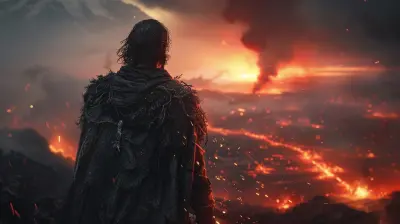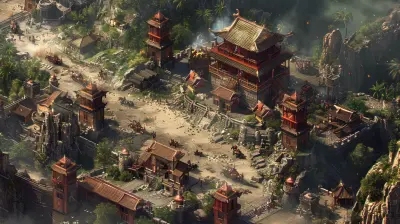Unexpected Plot Twists in JRPGs That Changed Everything
16 October 2025
If there’s one thing we JRPG fans LOVE, it’s getting emotionally wrecked by plot twists that come out of nowhere like a freight train of feelings. You’re just minding your own business, grinding levels, maybe hoarding some potions — and then BAM! The story flips like a pancake, and suddenly, you’re questioning everything you thought you knew.
JRPGs (Japanese Role-Playing Games) are notorious for their complex narratives, colorful worlds, and characters that you can’t help but get attached to. But the best of them? They aren’t afraid to shake things up with a twist so wild, it sticks with you for years. These unexpected turns redefine the story, flip the tone, and sometimes even change how you play the game entirely.
Grab your controller and your tissues — we’re diving into some jaw-dropping, heart-shattering, mind-bending plot twists in JRPGs that totally changed the game!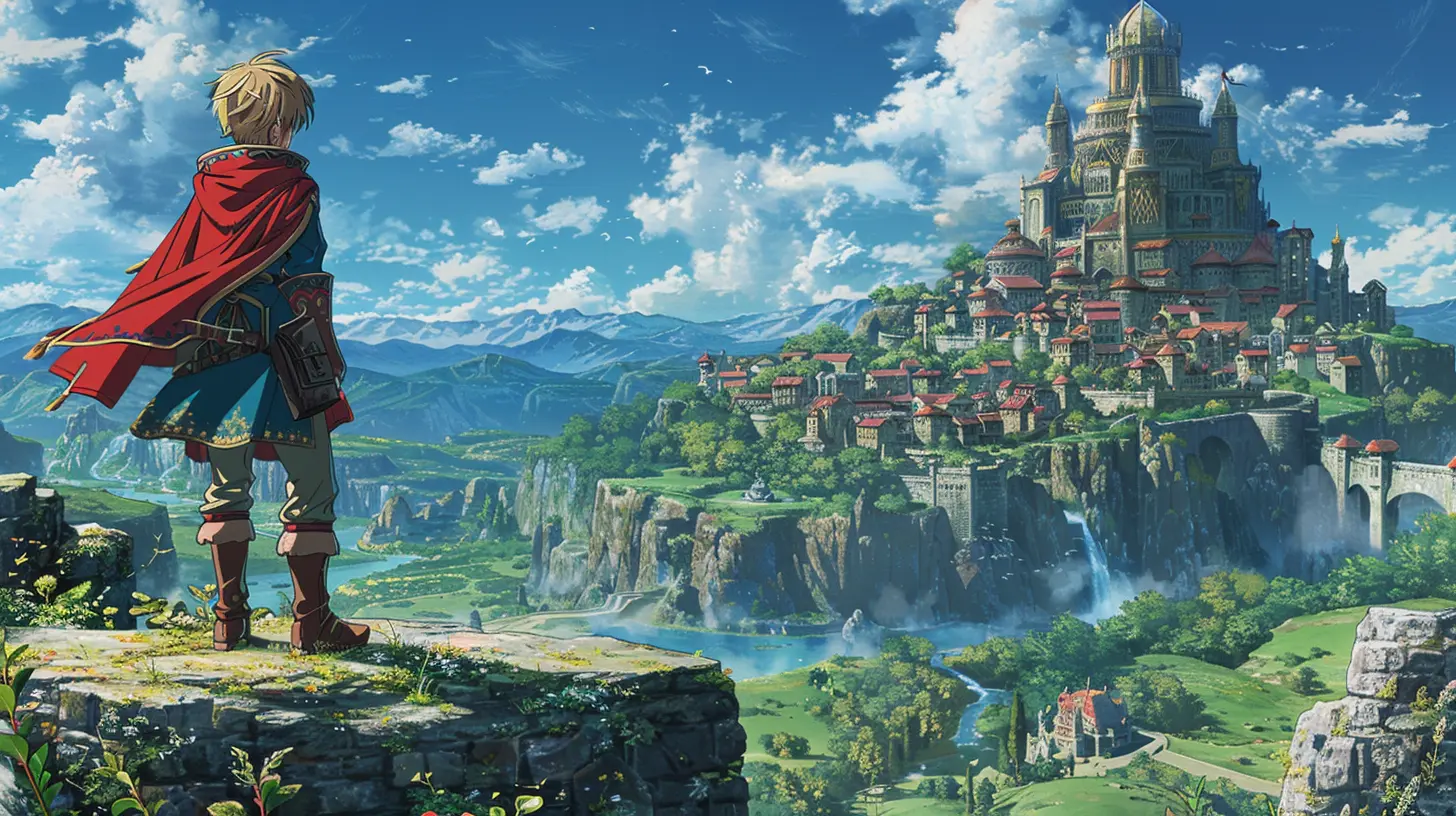
Why JRPG Plot Twists Hit So Hard
You might be wondering, “Why do JRPG plot twists feel so… intense?” Well, let me tell you — it’s all about the emotional build-up. These games don’t just tell a story. They let you live through it, often for 40 to 100+ hours. That’s a lot of time to get attached to characters, to start caring about their goals, their love lives, their tragic backstories.Then along comes a twist that yanks the rug right out from under you. It hurts, it shocks, but man, it makes the story unforgettable.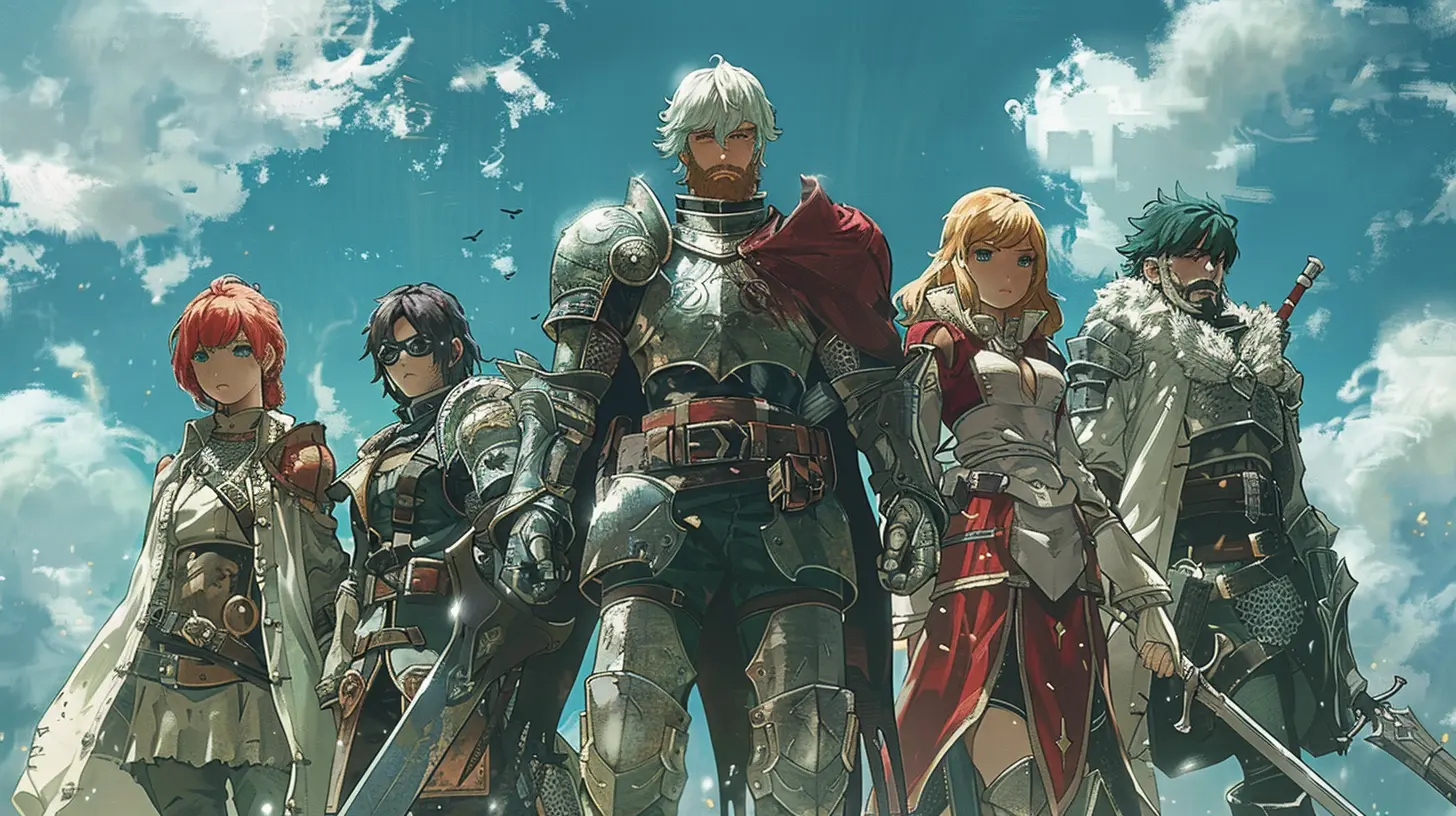
1. Aerith’s Death – Final Fantasy VII
We have to start here. I know it’s technically not that unexpected anymore thanks to memes, remakes, and being endlessly referenced — but back in 1997? This was devastatingly unexpected. Aerith was the healer. The sweetheart. The one you just knew would be there to the end.And then Sephiroth descends from above and… yeah. You never look at holy materias the same way again.
This twist wasn’t just sad — it set the tone for how serious the story could get from here on out. It told players, “Yes, anyone can die.” And it hit like a meteor.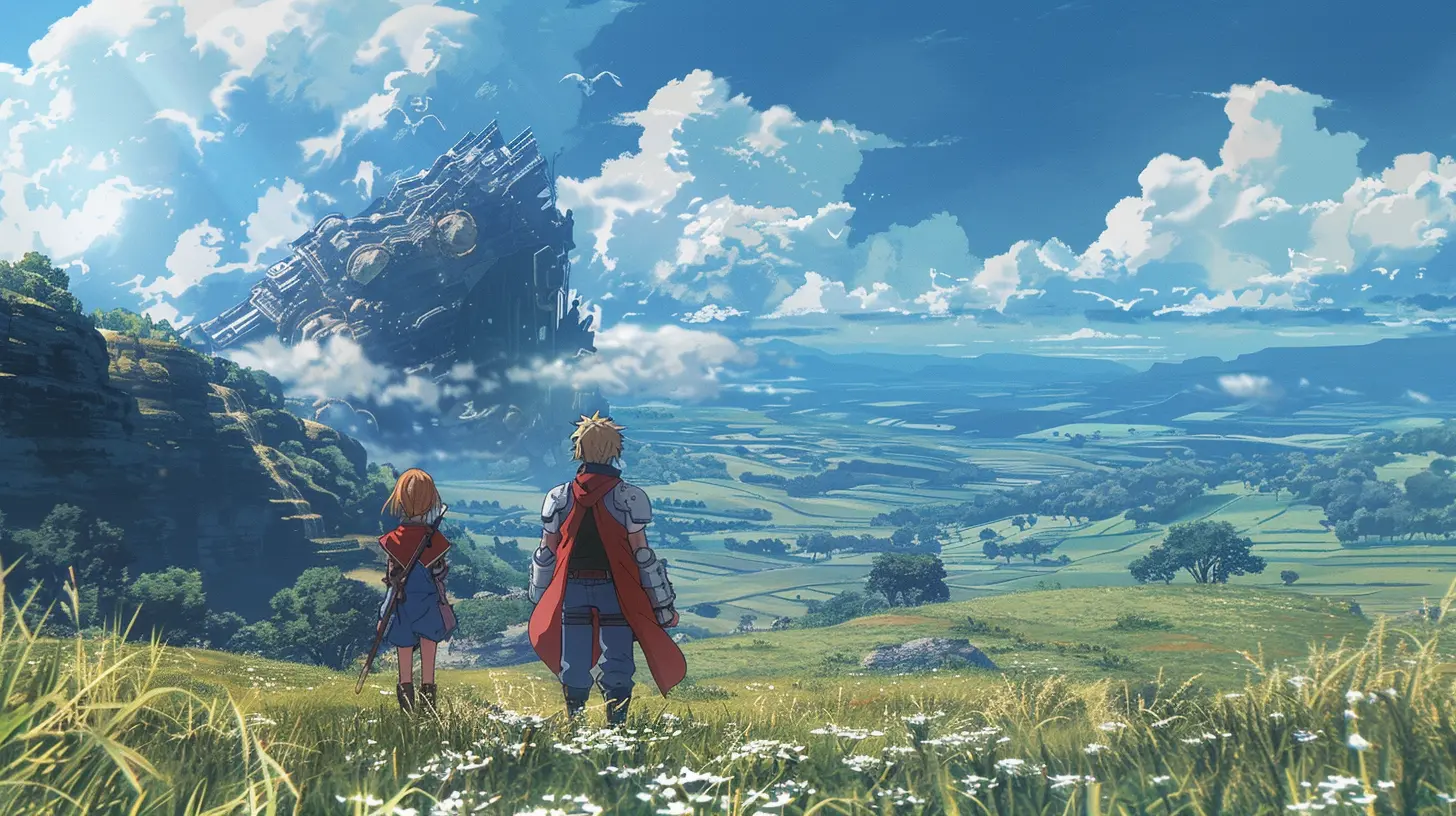
2. Persona 5 – The True Traitor Twist
So you’ve been working your butt off with your Phantom Thieves team, stealing hearts, fighting evil, and slowly unraveling the mystery of a corrupt society. Everyone’s tight-knit. You trust them.Then… betrayal. And it stings. Hard.
Not gonna drop names (no spoilers here!), but that traitor? Totally blindsides you if you weren’t paying attention to the subtle hints. The game even plays with you — making you feel like you outsmarted the villain, only to pull the rug out during a key scene.
It’s plot twist perfection and a masterclass in misdirection.
3. Xenoblade Chronicles – Everything About Zanza
Let’s talk brain-melters. Xenoblade Chronicles starts off like your fairly typical sci-fi fantasy struggle — swords, mechs, epic battles. Then, out of nowhere, the twist drops.Your main character? Yeah, the Monado-wielding savior Shulk? Turns out he’s been manipulated the entire time. Your goal? It’s basically been set by a god that used to be a scientist, and the whole universe is just a failed lab experiment.
Excuse me?! 🧠💥
The Zanza twist makes you rethink every single thing up to that point. It's like suddenly realizing you’ve been playing chess and your opponent was five moves ahead from the start.
4. Tales of Symphonia – Dual Worlds and False Heroes
Ah, the Tales series — always full of anime charm and fun combat. But Symphonia threw a curveball that no one saw coming.The big mission? Save the Chosen, help her regenerate the world. Sounds noble, right? Except... the entire system is a sham! You save one world, and the other slowly dies.
Oh, and the “good guys” might not actually be so good.
The game flips your moral compass upside down and challenges you to balance power, responsibility, and the concept of sacrifice. It’s like being told the cake is fake — and then having to eat it anyway.
5. NieR: Automata – The Game That Never Stops Twisting
Okay, NieR: Automata is just one big, glorious, philosophical twist-fest. I mean seriously, just when you think you’ve reached the end — surprise! That was just Route A. Then Route B. Then C. And each playthrough peels back another convoluted, emotionally gutting layer.You start thinking you’re just playing androids fighting aliens. But then you find out the aliens are dead. The robots are sentient. The humans are also dead. The war is pointless. And your characters… oh boy.
The real twist is how you change. The game makes you feel every inch of despair — and yet still hope. It’s storytelling sorcery.
6. Final Fantasy X – Tidus’s Great Vanishing Act
FFX is beautiful, haunting, and deeply emotional. You’ve got a dreamlike setting, a pilgrimage to stop a monster, and a blooming romance between Tidus and Yuna.But then it hits you.
Tidus isn’t real.
Yep. Our protagonist is literally a dream. A memory brought to life by the will of dying spirits (the Fayth), and he’s destined to disappear once Sin is defeated.
This twist seems almost poetic. It’s like falling in love with a ghost. You feel the joy — and then comes the heartbreak.
7. Suikoden II – The Tragedy of Jowy
If you haven’t played Suikoden II, you just missed out on one of the greatest friendship-gone-wrong stories in gaming.Jowy, your best friend, your brother-in-arms… turns against you.
But it’s not the betrayal that cuts deep — it’s the why. Jowy doesn’t just become your enemy for power or revenge. He does it to save people. To bring peace, even if it means becoming the villain.
This kind of moral complexity is rare, and it turns what could’ve been a generic rivalry into a Shakespearean tragedy. It hurts so good.
8. Chrono Trigger – When You Straight-Up Die
Chrono Trigger is pretty upbeat by JRPG standards. Time travel, quirky companions, cool dual-techs… and then the main character dies. Just, poof. Gone.The twist doesn’t just hit emotionally — it hits your gameplay too. Suddenly you’re leading a party without your central hero. You have to figure out how to move forward, both narratively and literally.
Finding a way to bring Chrono back isn’t just a side quest — it’s a metaphor for hope. In a game about rewriting time, this twist makes you feel the weight of loss and the beauty of redemption.
9. Fire Emblem: Three Houses – The Route Split
This one’s less of a single moment and more of a sucker-punch decision. About halfway through Three Houses, you’re forced to pick a side. You might think, “Cool, I’ll just go with my favorite house.”But choosing the Black Eagles? Yeah, that leads to some wild story changes. Suddenly, allies become enemies, old classmates face off in tragic ways, and the plot becomes a battlefield of ideals.
This twist isn’t just shocking — it’s deeply personal. You grew with these characters, taught them, bonded with them… and now you're forced to fight them.
Ouch.
10. Lost Odyssey – The Forgotten Memories
Lost Odyssey might not be as talked about today, but man, it delivers emotional gut punches by the truckload. You play as Kaim, an immortal warrior who’s forgotten most of his past.The twist? His lost memories, told through beautifully written dream sequences, reveal centuries of pain, love, loss, and what it truly means to be human.
It’s not a twist in a traditional “surprise!” sense — but rather in the way it slowly reveals a staggering depth of character, effectively changing how you see everything.
It’s like peeling an onion made entirely of tears.
What Makes a Great JRPG Plot Twist?
Let’s face it — not every plot twist lands. A good one doesn’t just shock you; it enriches the story, redefines characters, and deepens the emotional stakes. The best twists make you sit back, reevaluate everything, and feel. They’re the cherry on top of an already rich storytelling sundae.Here’s what they usually have in common:
- 💥 Emotional Stakes – You’re deeply invested in the characters and outcome.
- 🧩 Clever Foreshadowing – The clues were always there, you just missed 'em.
- 🎭 Character Impact – The twist changes how you see someone forever.
- 📜 Story Recontextualization – Everything you’ve done or known takes on a new light.
Honorable Mentions (Because Cutting to 10 Was Too Hard 😅)
- Bravely Default – When you realize you’ve been looping dimensions.- Persona 4 – That one character you really didn’t expect to be the killer.
- The Legend of Dragoon – Rose and the Black Monster reveal!
- Final Fantasy IX – Zidane’s true origin. Existential crisis, anyone?
So... Did You See That Coming?
JRPGs are at their best when they toy with our expectations. They let us think we’re in control, only to shatter our assumptions in spectacular fashion. These plot twists aren’t just shocking — they’re defining moments that elevate the entire game.And that’s what makes these stories so unforgettable. They didn’t just change the narrative — they changed us as players.
So, next time a JRPG throws a curveball at you, don’t panic. Just lean into it. Cry a little. Scream at your TV. Then hit “Continue” — because the story’s just getting good.
all images in this post were generated using AI tools
Category:
JrpgsAuthor:

Leandro Banks
Discussion
rate this article
1 comments
Thor Diaz
This article brilliantly highlights how unexpected plot twists in JRPGs transform narrative engagement, reshaping player expectations and emotional investment. Moments like *Final Fantasy VII's* Aerith's fate not only redefine character arcs but also challenge players’ perceptions of heroism and sacrifice, ultimately elevating the medium’s storytelling potential. A truly compelling exploration!
October 17, 2025 at 5:00 AM

Leandro Banks
Thank you for your insightful comment! I'm glad you found the exploration of plot twists in JRPGs compelling, especially how they reshape narratives and player engagement.

